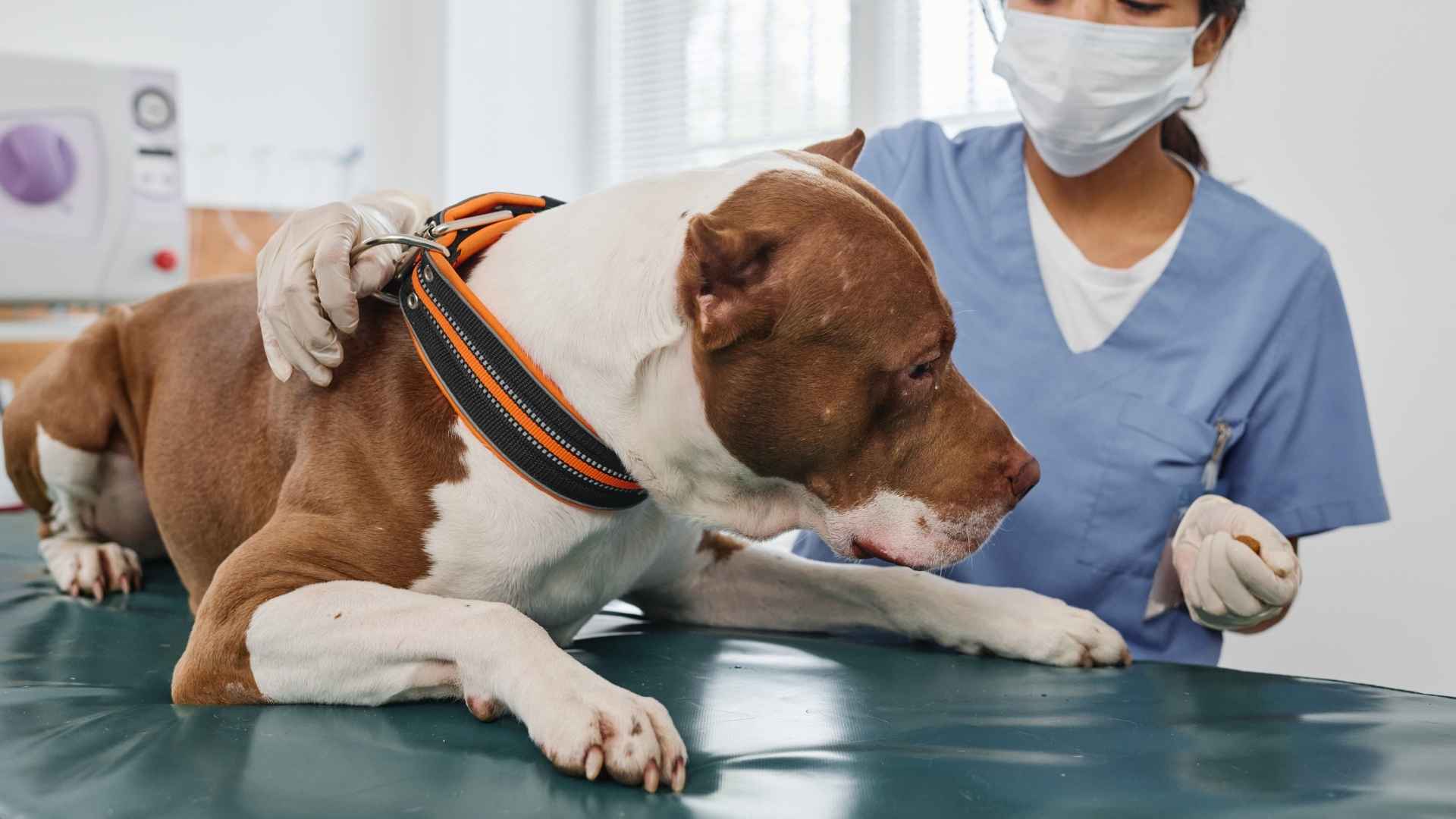Purebred dogs are 2.7 times more likely to be genetically predisposed to at least one inherited health condition, a statistic that sheds light on a lesser-known side of canine companionship. Traits like a Dachshund’s long back or a Boxer’s expressive face may charm us, but they often come with genetic quirks that can impact health and longevity.
With more people treating pets as cherished family members, the demand for transparency around breed-specific health issues is rising. From social media awareness to growing conversations with veterinarians, there’s a cultural shift toward making informed choices—ones that prioritize well-being over appearance. It’s not just about selecting the cutest pup; it’s about understanding what that choice might mean in the long run.
As we explore which breeds are more vulnerable to inherited conditions, this guide will help dog lovers approach their decisions with empathy, clarity, and a deeper appreciation for what lies beneath the surface.
Dog Breeds with Genetic Health Predispositions
1. French Bulldog

Compact, charming, and undeniably popular, the French Bulldog has become a staple among popular dog breeds, adored for its affectionate nature and compact size. However, like many purebred dogs, this breed comes with notable genetic predispositions that potential owners should be aware of.
According to PetMD, one of the most significant challenges faced by these small dogs involves breathing problems, primarily due to an elongated soft palate and narrowed airways. These anatomical features are part of what gives them their signature look, but also contribute to health problems that may require lifelong management.
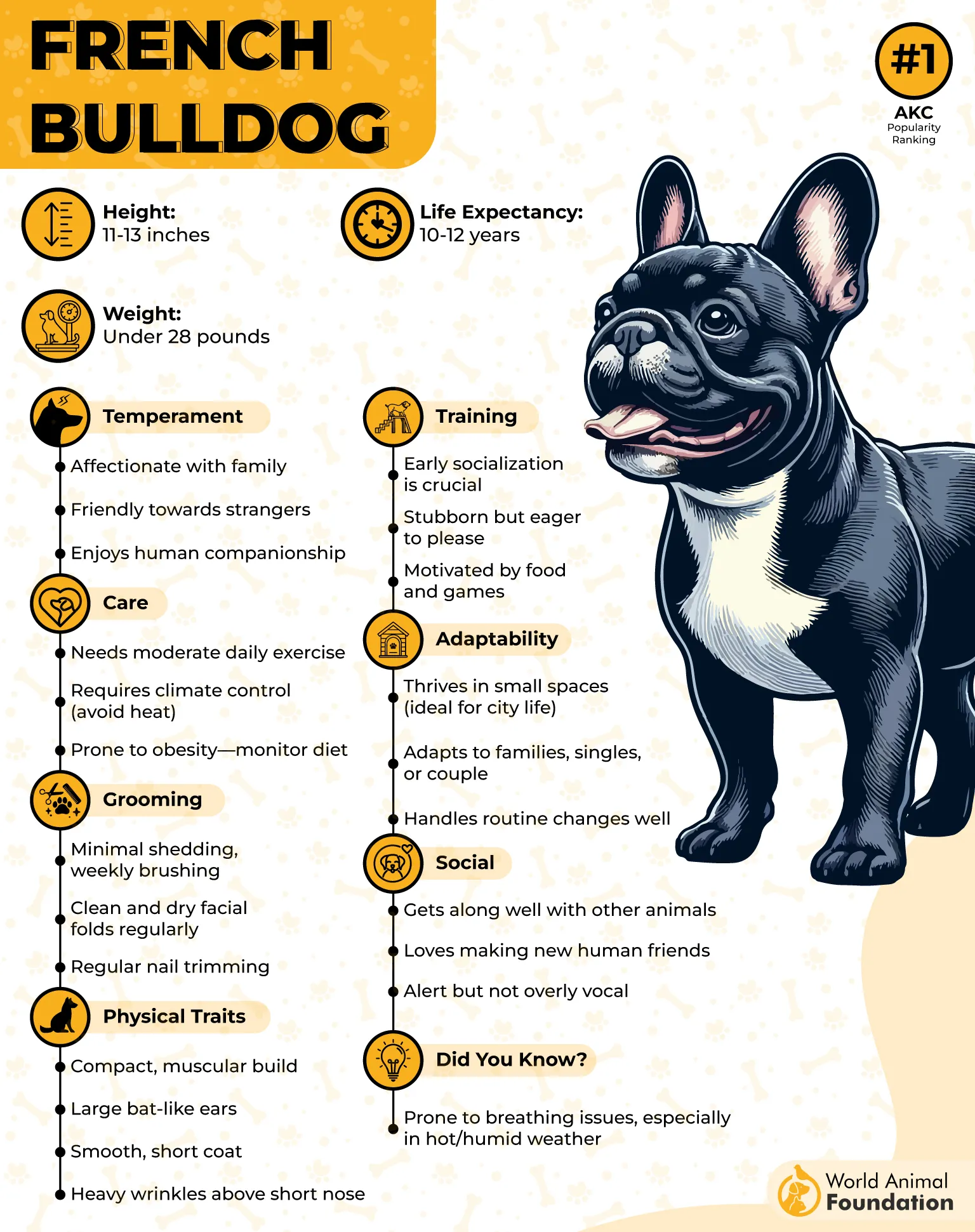
Beyond respiratory concerns, French Bulldogs may experience atopic dermatitis, a skin condition triggered by both environmental and genetic factors. While not every dog will be affected, the genetic risk is considerably higher compared to mixed-breed dogs.
Orthopedic issues such as patellar luxation are also observed, limiting mobility and comfort in some affected dogs. Fortunately, advances in veterinary medicine offer better diagnostic tools and treatments to manage these issues effectively.
Despite these inherited concerns, many dogs affected live fulfilling lives with attentive care. Understanding their unique needs empowers pet parents to make informed choices and ensure their companions thrive.
2. German Shepherd

Regarded as one of the most intelligent and loyal dog breeds, the German Shepherd dog is celebrated for its versatility and strength. From police units to family homes, its presence is widespread—yet this beloved breed also faces a number of inherited health issues that deserve attention.
A well-documented concern in German Shepherds is hip dysplasia, a joint abnormality that can cause discomfort and reduced mobility. This serious condition is common in larger dogs, especially those from certain purebred subgroups, and is less commonly observed in mixed-breed dogs.

Another progressive issue is degenerative myelopathy, a debilitating disease of the spinal cord that affects mobility and quality of life in aging dogs. Although not all individuals develop symptoms, those who do may eventually lose hind limb function.
Like several working dogs, German Shepherds are also prone to elbow dysplasia and skin allergies, both of which can complicate daily care and require ongoing support. Early signs like stiffness or limping shouldn’t be overlooked, as timely intervention can slow progression.
Through early screening, such as genetic tests, and thoughtful care, pet parents can manage these risks and give their loyal companion the best chance at a happy, active life.
3. Boxer

Energetic, affectionate, and full of personality, the Boxer remains one of the most popular breeds among families and dog enthusiasts alike. Yet beneath their muscular build and playful spirit lies a heightened genetic predisposition to several health challenges that owners should be mindful of.
One of the most concerning risks for this breed, according to the AKC, is dilated cardiomyopathy, a condition that weakens the muscle wall of the heart and can lead to sudden complications. This condition is especially alarming because it may not show clinical signs until advanced stages.
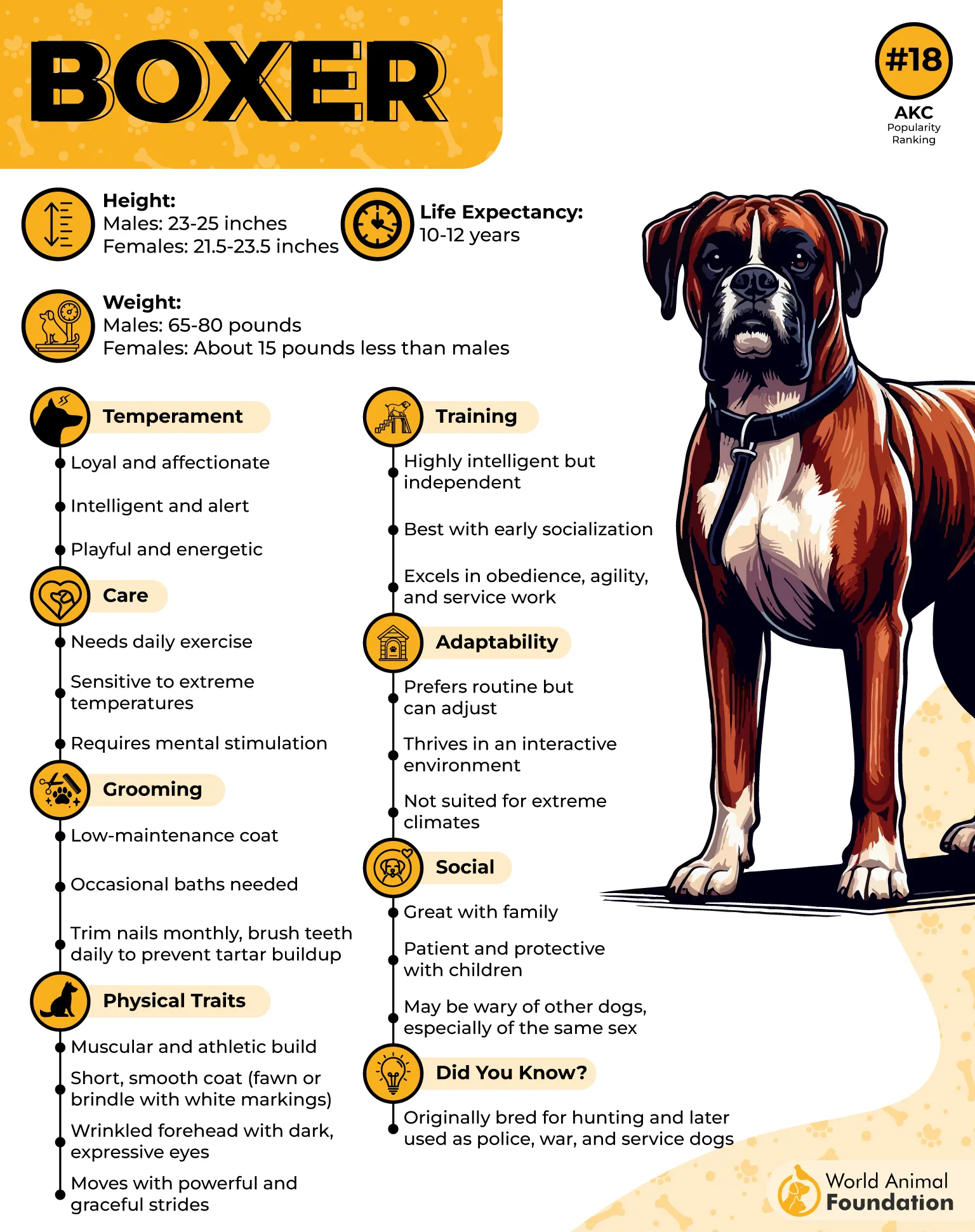
Boxers are also notably susceptible to mast cell tumors, a type of skin cancer that can vary in severity. These health issues often require vigilant monitoring and, in some cases, surgical intervention to manage effectively.
Additionally, they may face hormone imbalances such as thyroid, leading to issues like lethargy, coat thinning, or weight fluctuations. Among purebred dogs, Boxers have shown a relatively high rate of such genetic disorders.
Despite these risks, many dogs affected live vibrant lives when supported with early detection, proper treatment, and regular care—proof that understanding a breed’s inherited disorders can lead to empowered and compassionate ownership.
4. Dachshund

With their unmistakable long bodies and bold personalities, Dachshunds are among the most charming small dogs in the dog world. While their appearance makes them stand out, it also contributes to a heightened biological predisposition for spinal conditions, especially intervertebral disc disease.
This painful spinal cord disorder is one of the most common inherited conditions in the breed, often triggered by minimal impact or routine movement. Many other dogs affected require surgery or extended rest periods, making preventive care essential.
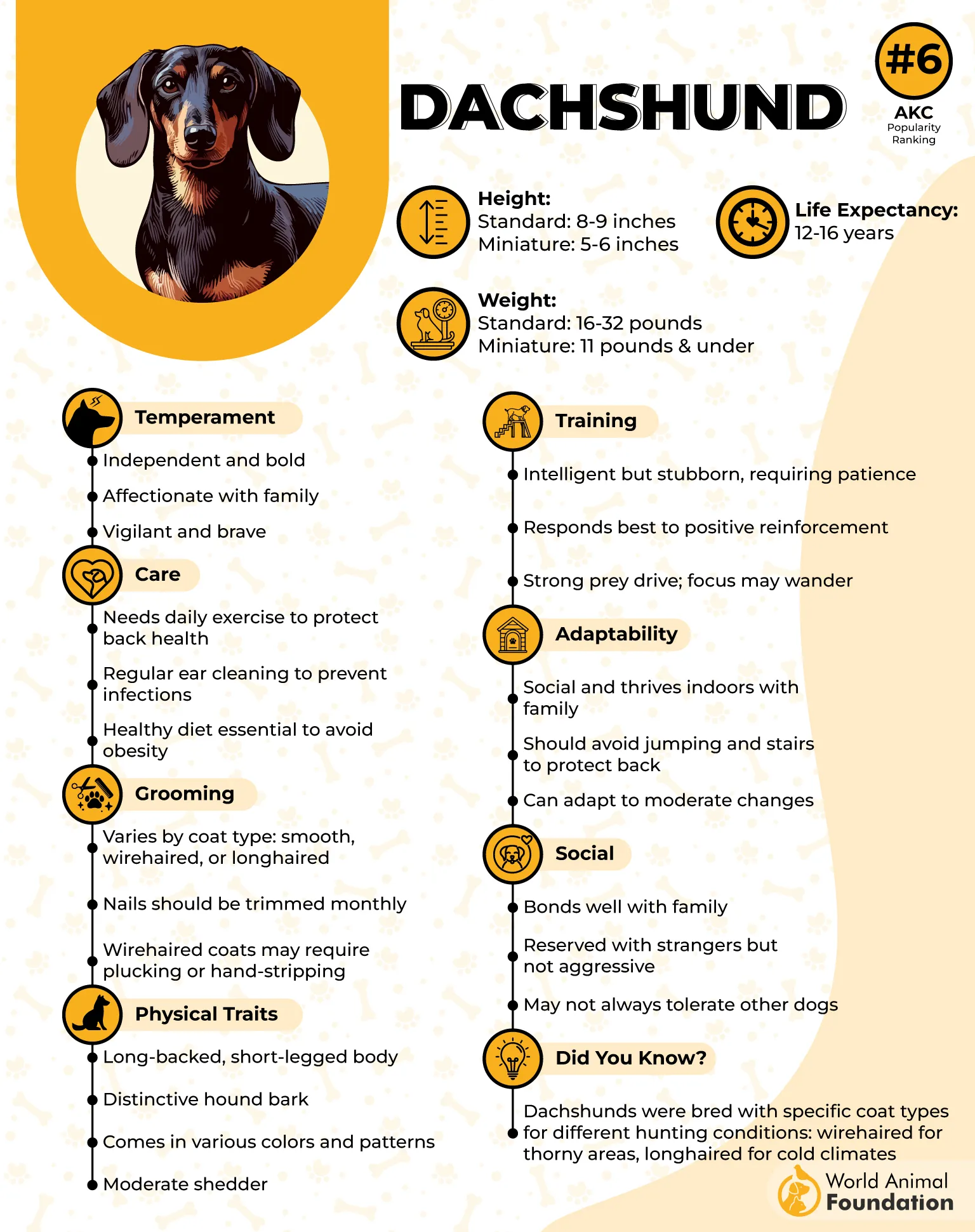
Dachshunds are also known to experience patellar luxation and allergic dermatitis, which can complicate mobility and skin health. These health conditions, though manageable, highlight the importance of early veterinary evaluation.
As one of the common breeds, they can also be affected by eye disease, including progressive retinal atrophy, which gradually impairs vision and may lead to blindness.
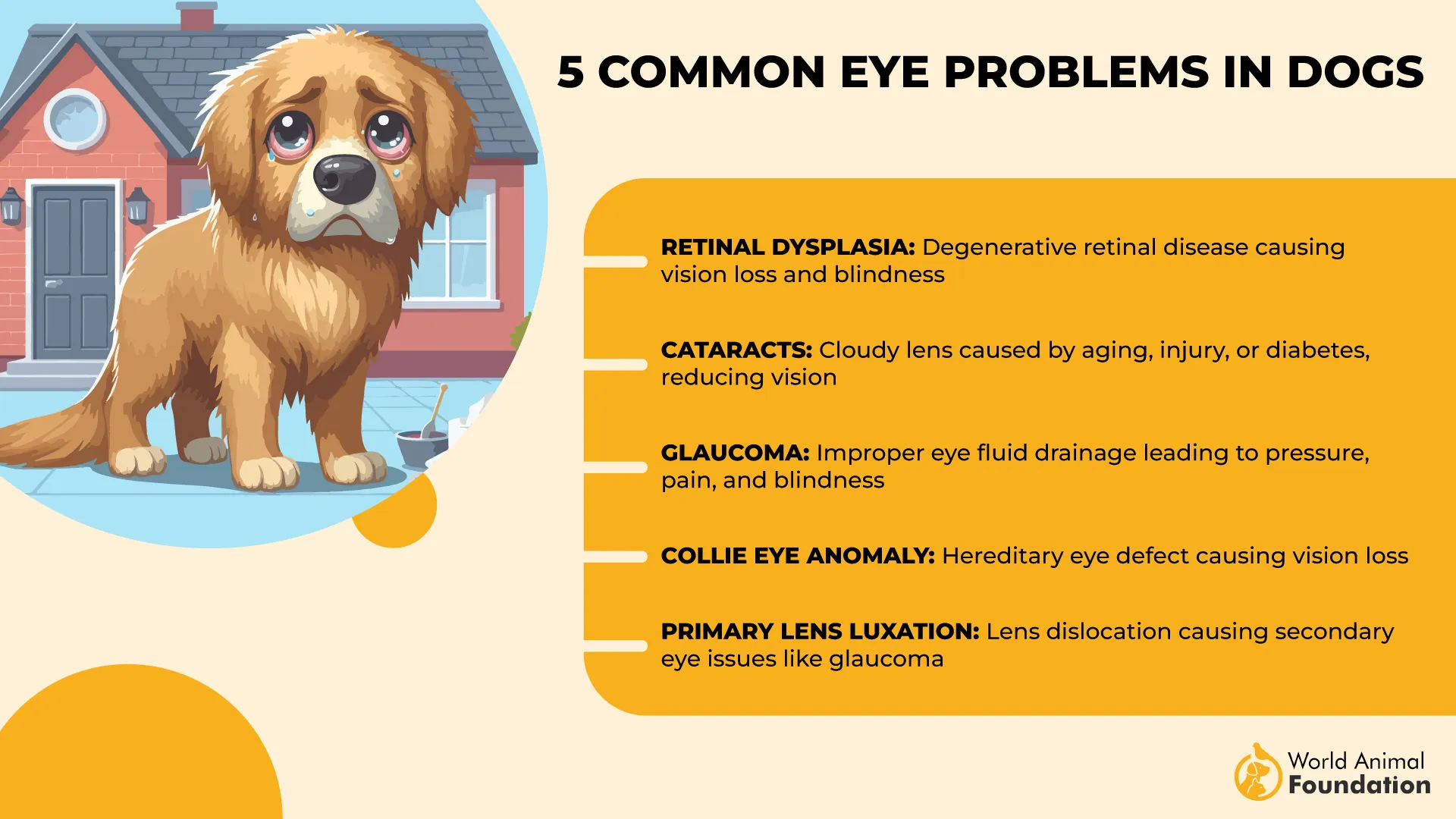
Despite these risks, with informed care, many affected dogs maintain a joyful and active lifestyle. Their spirited nature and loyalty continue to make them beloved companions in homes worldwide.
5. Doberman Pinscher

Elegant and powerful, the Doberman Pinscher is known for its loyalty and alertness. As a member of the working dogs group, it often ranks among the most admired dog breeds—yet it carries a notable burden of inherited disorders.
One of the primary health concerns is dilated cardiomyopathy, a potentially fatal disease that causes the heart to enlarge and pump less effectively. It’s one of the leading causes of sudden death in the breed and a key reason why routine screenings are vital.
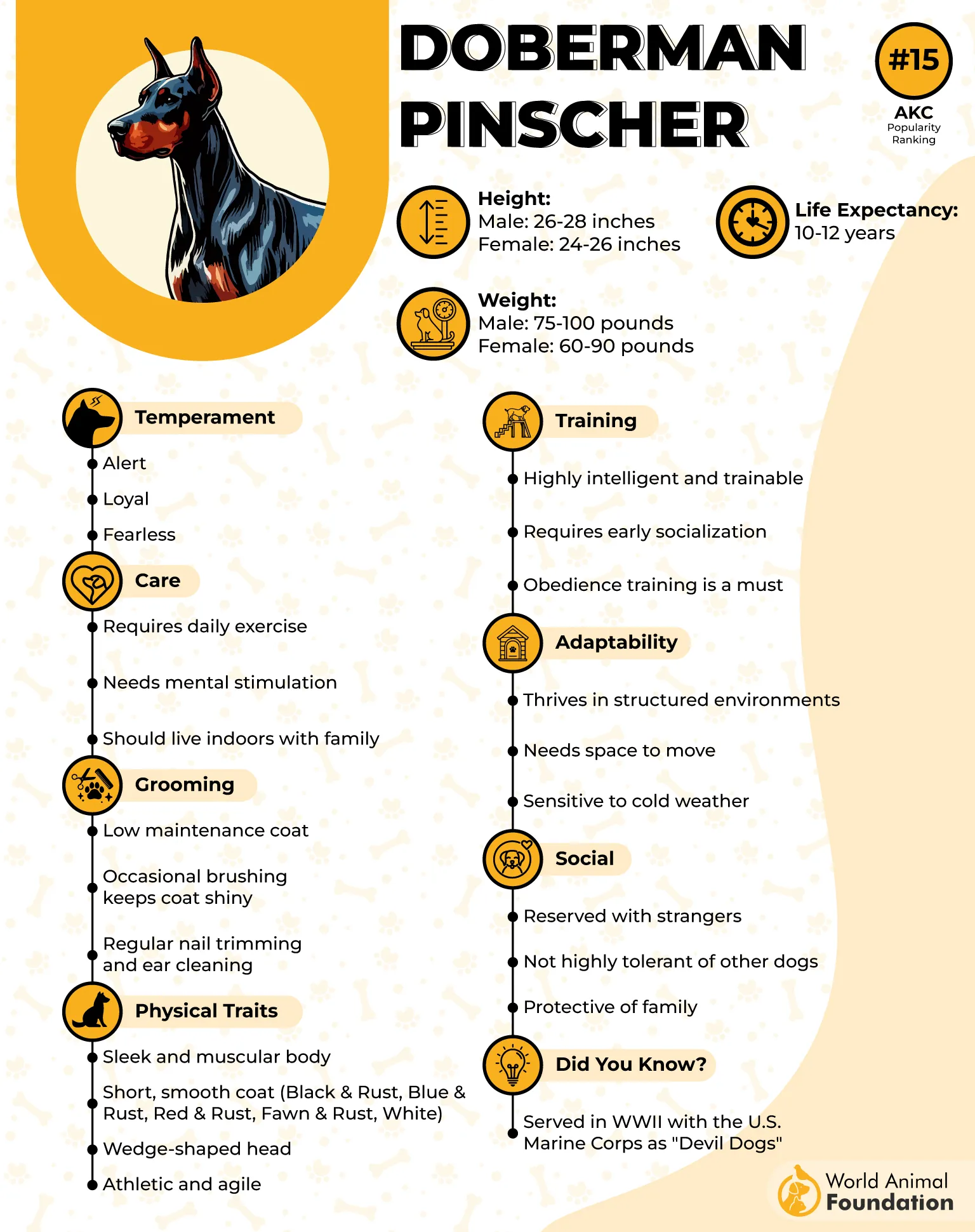
Another condition found in Dobermans is von Willebrand disease, a bleeding disorder that stems from an abnormal genetic predisposition and affects blood clotting. Though it can vary in severity, it poses serious risks during surgeries or injuries.
They may also develop hypothyroidism, which results from thyroid hormone imbalance and can lead to sluggishness or abnormal growth. These disorders occur more frequently in purebred dogs and demand proactive health monitoring.
With early diagnosis, responsible breeding, and supportive care, many dogs affected thrive well into their senior years—proof that awareness and prevention can make all the difference.
6. Cocker Spaniel

Sweet-natured and adorably expressive, the Cocker Spaniel has long been cherished among popular breeds. But beneath that silky coat and soulful gaze, this breed is prone to several inherited diseases that prospective owners should know about.
One of the most prominent concerns is progressive retinal atrophy, a form of eye condition that causes gradual vision loss and may lead to total blindness. It’s often inherited and can appear without obvious early symptoms.
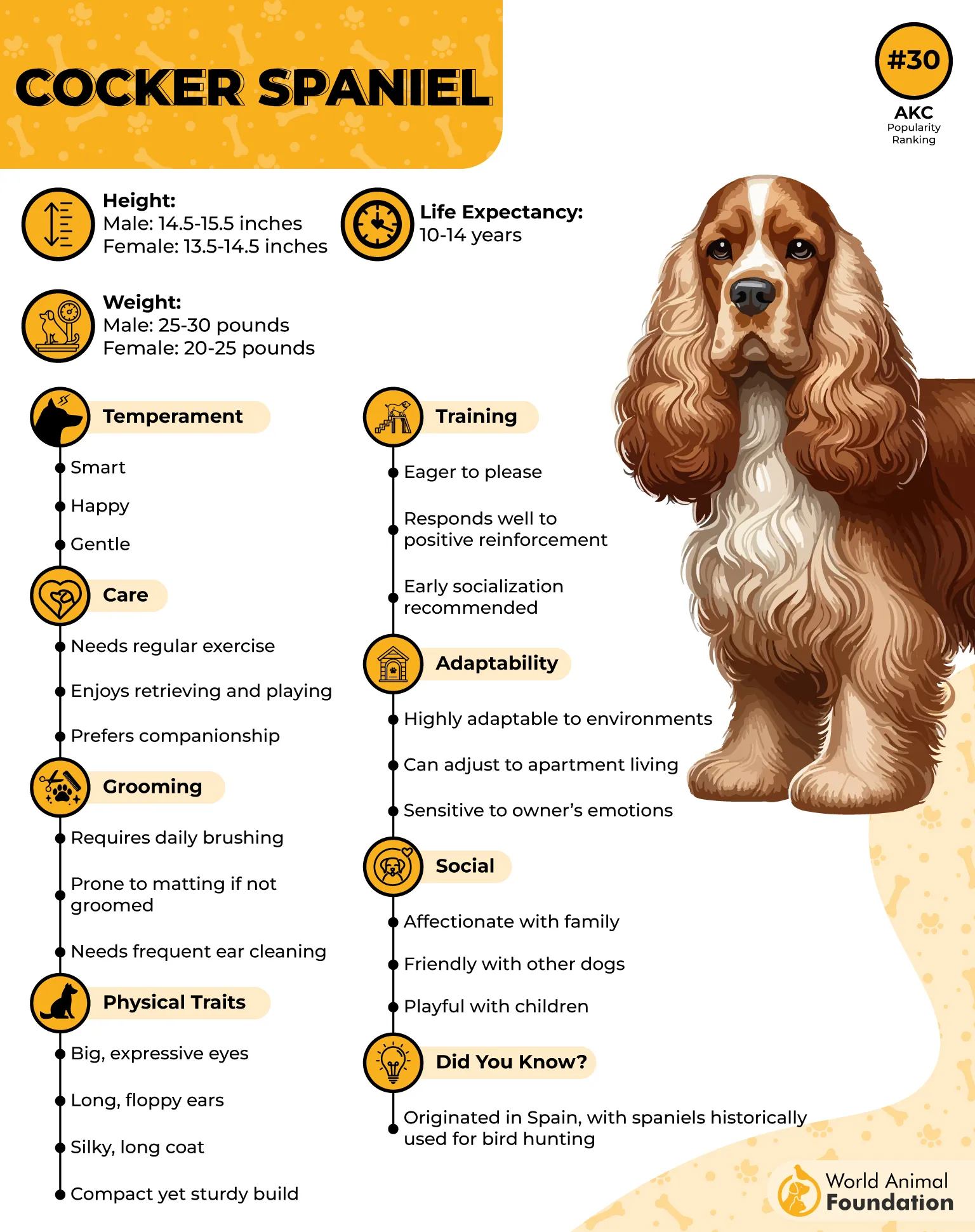
They are also at risk for mitral valve disease, a condition that affects the heart’s ability to pump efficiently and may result in fatigue or coughing. This issue tends to become more prominent with age, requiring regular veterinary monitoring.
Skin-related issues like atopic skin disease are another common concern. These health conditions can cause discomfort and may be triggered by both environmental factors and genetic susceptibility, more frequently than seen in mixed-breed dogs.
While some dogs affected may experience multiple challenges, with attentive care and early intervention, most Cocker Spaniels enjoy active, affectionate lives that enrich their families every day.
7. Rottweiler

Strong, confident, and deeply devoted, the Rottweiler is a standout among larger breeds and one of the most recognizable working dogs. Yet this powerful breed is also linked to several inherited conditions that require responsible ownership and health planning.
Hip dysplasia is a well-documented concern, often causing discomfort, lameness, or difficulty in movement. Like many giant breeds, Rottweilers also face a higher risk of developing elbow dysplasia, which may limit activity over time.
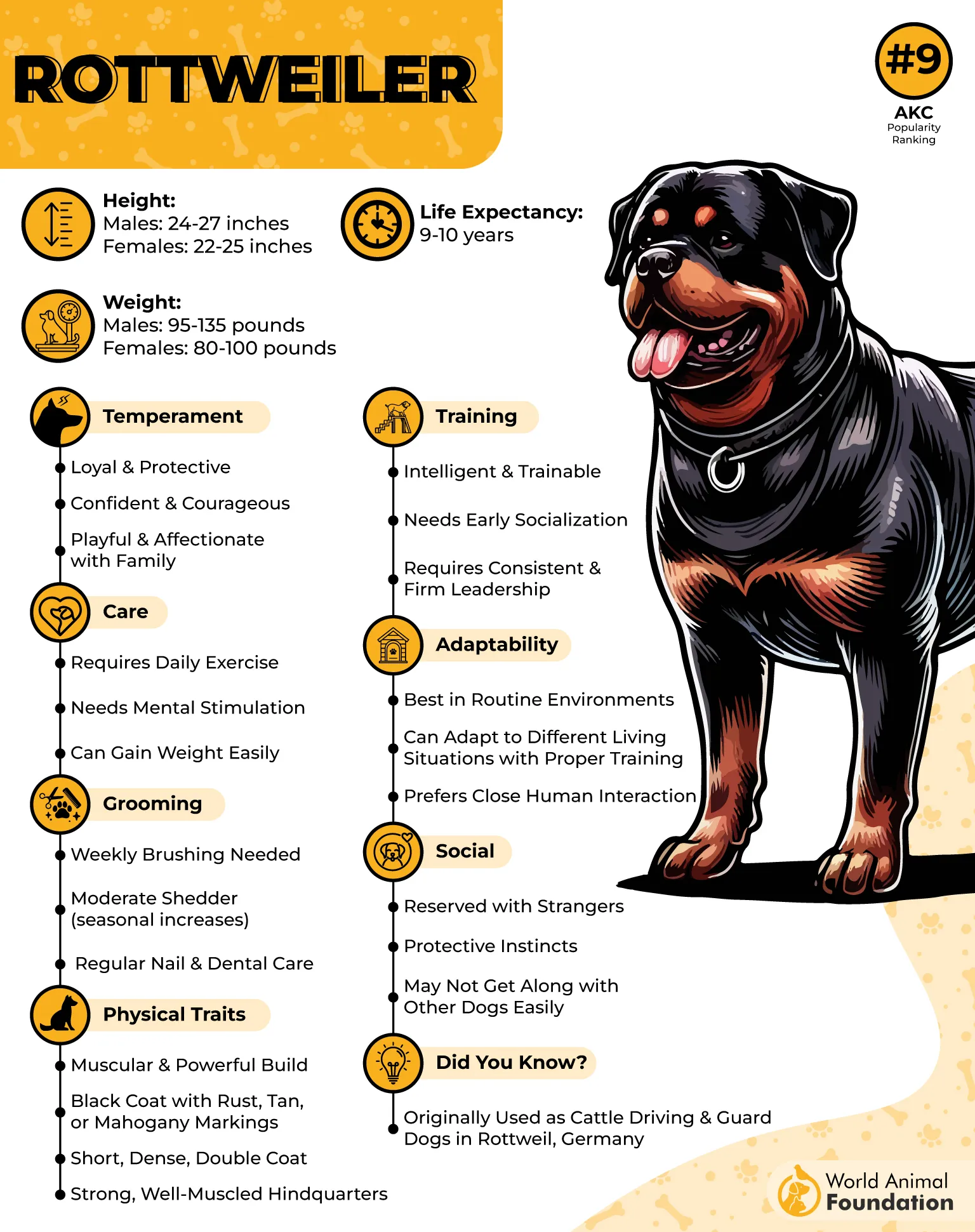
A more critical risk involves aortic stenosis, a serious condition where the heart’s outflow is narrowed, potentially leading to heart failure or sudden cardiac events. Regular cardiac evaluations are key to early detection.
PDSA reports that they also exhibit a notable susceptibility to osteosarcoma, a form of bone cancer more common in dog breeds with genetic health predispositions. This aggressive disease requires swift intervention.
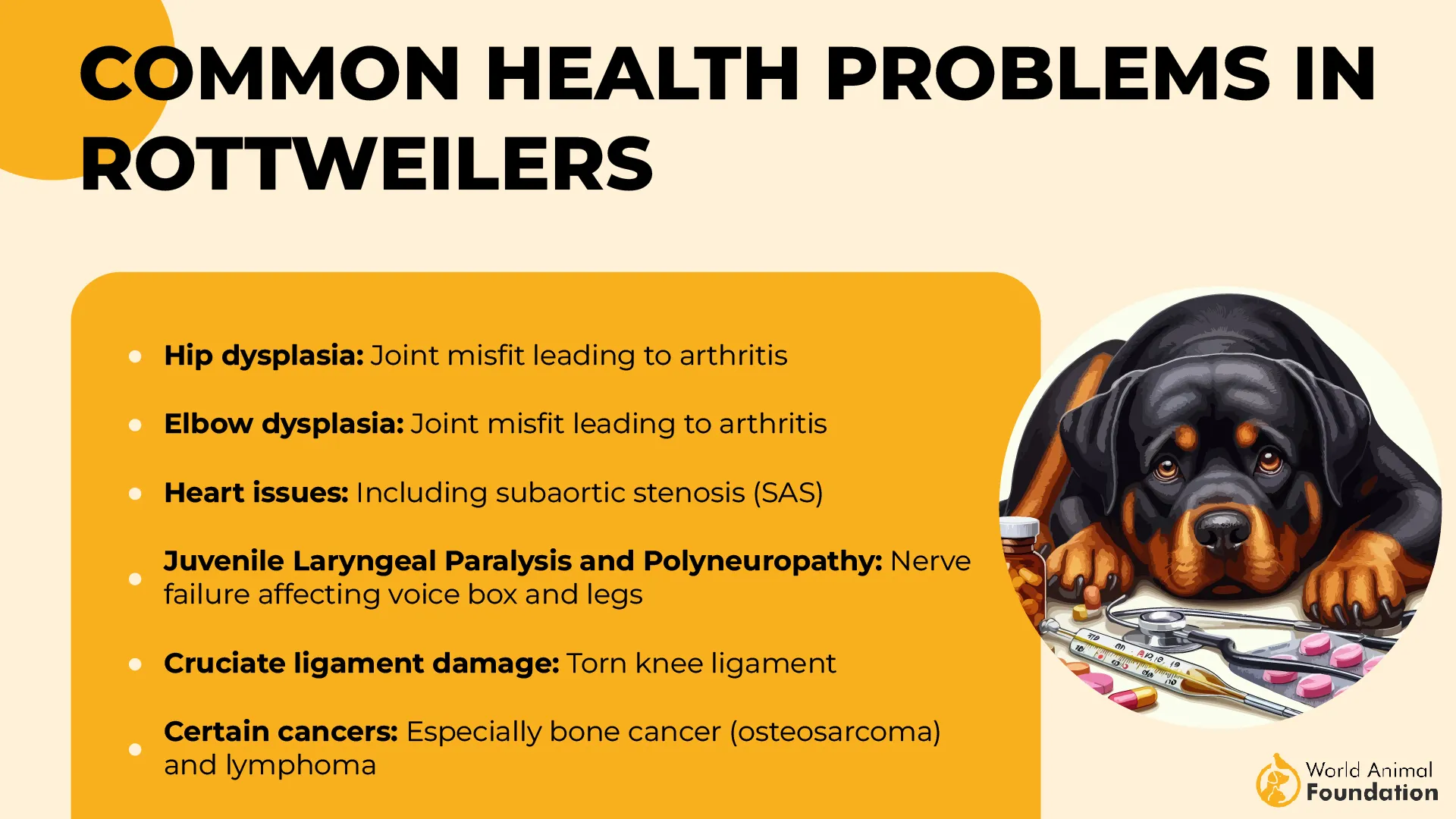
Despite these challenges, many dogs affected live robust lives when supported by proactive healthcare, responsible breeding practices, and an owner who understands the unique needs of this loyal companion.
Conclusion
From the squishy-faced charm of the French Bulldog to the devoted Rottweiler, each breed we explored brings something truly special to the table, along with a few inherited health quirks worth understanding. These dogs aren’t defined by their conditions, but by the joy, companionship, and character they bring into our lives.
Understanding common genetic predispositions isn’t about creating fear—it’s about creating awareness. When we know better, we can do better for our furry companions, whether that means early vet visits, tailored care, or just a little extra love on the tough days.
And while today’s spotlight shone on a few breeds, it’s worth tipping our hats to other dog breeds like the ever-golden-hearted Golden Retrievers, endlessly lovable Labrador Retrievers, and sweet, soulful Cavalier King Charles Spaniels—each adored for their personalities, even as they face their own health challenges.
At the end of the day, every breed has its quirks. But those quirks come wrapped in wagging tails, sloppy kisses, and unmatched loyalty. So, whether you’re a seasoned dog parent or just window-shopping for your future best friend, let knowledge be your leash and love your guide.
After all, the perfect dog isn’t the one without flaws—it’s the one whose heart fits yours.


